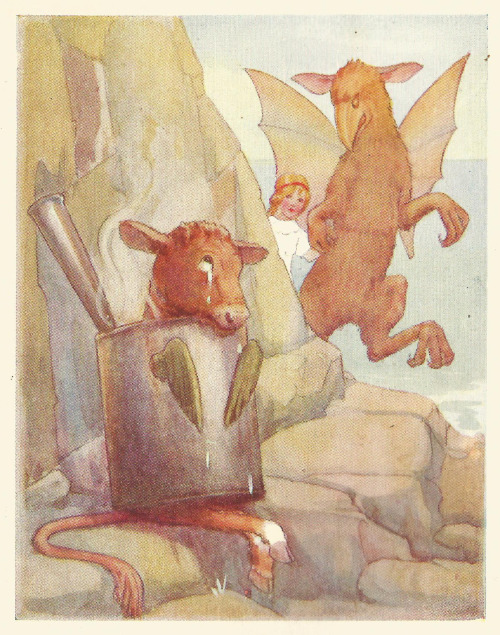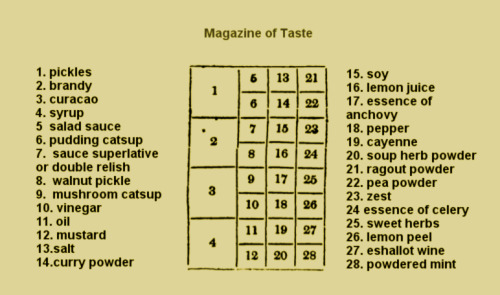#wow-wow sauce
Hello. We’ve been writing this blog every day for a little over eleven months now. As it was our intention to find out why every single day of the year is BRILLIANT, we’re almost there and it seemed appropriate to have some sort of countdown. If we make it, there will be eighteen more posts after this one. You can also find this blog on Wordpress, along with a short explanation of how it came about, and in which we reveal which of us has actually written all of this on the ’about’ page. Thank you all for reading, liking and reposting.
Why February 26th is BRILLIANT
Condimental
Today we want to tell you about William Kitchiner. He is one of those people who’s date of birth is lost in the mists of time, but it was probably some time in the 1770s. We do know that he attended his last party on this day in 1827. It always feels a bit odd to be commemorating a person’s death on this blog, rather than their birth, unless they were completely awful. But we can tell you that he’d had a really lovely evening with his friends.
William Kitchiner was the son of a coal-merchant who left him a large fortune, maybe £60,000 or £70,000. So he could do pretty much what he wanted with his life. He liked music, he was very fond of telescopes, but the things that he really enjoyed most were cooking, sharing his food with friends and writing about it. He wrote a book called ‘The Cook’s Oracle’, in 1822, which was a best seller in both the United Kingdom and the United States. Most of the six hundred or so recipes in his book had been prepared by him personally. He cooked them and he did the washing-up afterwards. He also tested them out at a weekly club he called his 'Committee of Taste’ at his home in Warren Street, Camden. His book contains not only recipes but general tips on household management: how to preserve foods, look after your pans properly and where to buy the best nutmeg graters. He was also considered rather an eccentric man, particularly in respect to time-keeping.
William’s invitations were highly prized but you needed to be punctual. He had dinner at five and supper at half past nine. Arrive late and you would probably find you were locked out. His reasoning was that, whilst it was okay for people to be hungry for a little while if the meal wasn’t quite ready, once the dinner was prepared it could easily be ruined if it was not served immediately. He even suggested that families should synchronise all their clocks and watches to make sure this did not happen. If you tried to stay too late, you would suddenly find yourself out on the street at 11pm with your hat and coat. Fail to respond to his invitation within twenty four hours and he would assume that you weren’t coming. Fail to come up with what he considered to be a proper excuse and he would think you were very rude and probably wouldn’t invite you back. He seems to have had only three acceptable excuses: being detained by the law, visiting the doctor or being dead. Interestingly, being dead did not excuse the host from providing the promised meal. In that case, he would have a stand in host in the form of either a friend or his executor. William took his food very seriously.
Manners were terribly important to him, in his book he says: “Good manners have often made the fortunes of many, who have nothing else to recommend them: Ill manners have often marred the hopes of those who have everything else to advance them.” which is very sound advice. As long as you observed his time-keeping rules, behaved well and ate what you were given, it sounds like a fun evening. He was always careful, when introducing his guests to one another, to point out what it was that they had in common and to sit like-minded people together. We read that, on at least one occasion, he greeted his guests by playing a chorus of 'Hail the Conquering Hero’ on the piano whilst playing the kettle drums with his feet.
He wasn’t particularly bothered about whether his chosen guests were considered respectable and he didn’t much care what people thought of him, so long as they didn’t find him rude. He lived with a woman who wasn’t his wife and they had a son who they had sent to Charterhouse, which in case you don’t know is a very posh school indeed. He was no snob, as we mentioned, he had inherited his fortune from his father, who had begun life carrying coal on the London Docks and he is described as 'splendidly indifferent to social disgrace’ which is lovely. He invited Mary Shelley at a time when most people thought she was a dreadful embarrassing mess. He also invited Theodore Hook, who was renowned for his practical jokes but had been arrested for debt. Our post about him has been the most popular by far, so if your bored today and haven’t read it, you might want to check out ’The Berners Street Hoax’.
Many of his recipes are of his own invention. He had a particular fondness for gravies, sauces and condiments in general. He had a box of 28 condiments, all numbered and ordered, that he kept in his kitchen and that could also be put on the table for people to help themselves. He called it his 'Magazine of Taste’. He had a smaller version that he used to take with him to dinner parties. One of his concoctions, Wow-Wow Sauce, has gained some notoriety, not because it’s nice, but because it appears in Terry Pratchett’s 'Disc World’ novels. His book seems once to have contained a recipe for turtle soup which we couldn’t find as it has been omitted in later editions because it was so difficult and expensive to prepare. Instead he tells us he has used the space for more condiment recipes. There is however a recipe for 'mock’ turtle soup which, if you’ve looked at your 'Alice in Wonderland’ properly, you’ll know is made from the head of a calf. In case you can’t be bothered with all that he also includes a recipe for 'mock’ mock turtle soup.
We weren’t very impressed with his ideas for cooking vegetables. He tells us that carrots will take between 1½ and 2½ hours to cook. For cucumber, he suggests frying it and then boiling it. If you wanted a salad, he recommends a book by someone else entirely. There is definitely one of his vegetable recipes that you will have tried though. He invented potato crisps.
As well as his famous cookery book he also wrote about how to choose the right opera glasses in a book called 'The Economy of the Eyes’. He also wrote books titled: 'The Art of Invigorating and Prolonging Life’, which you should probably ignore because he died at about the age of fifty-one. Also, in its sixth edition, it was published with an extra section 'The Pleasure of Making a Will.’
Post link



